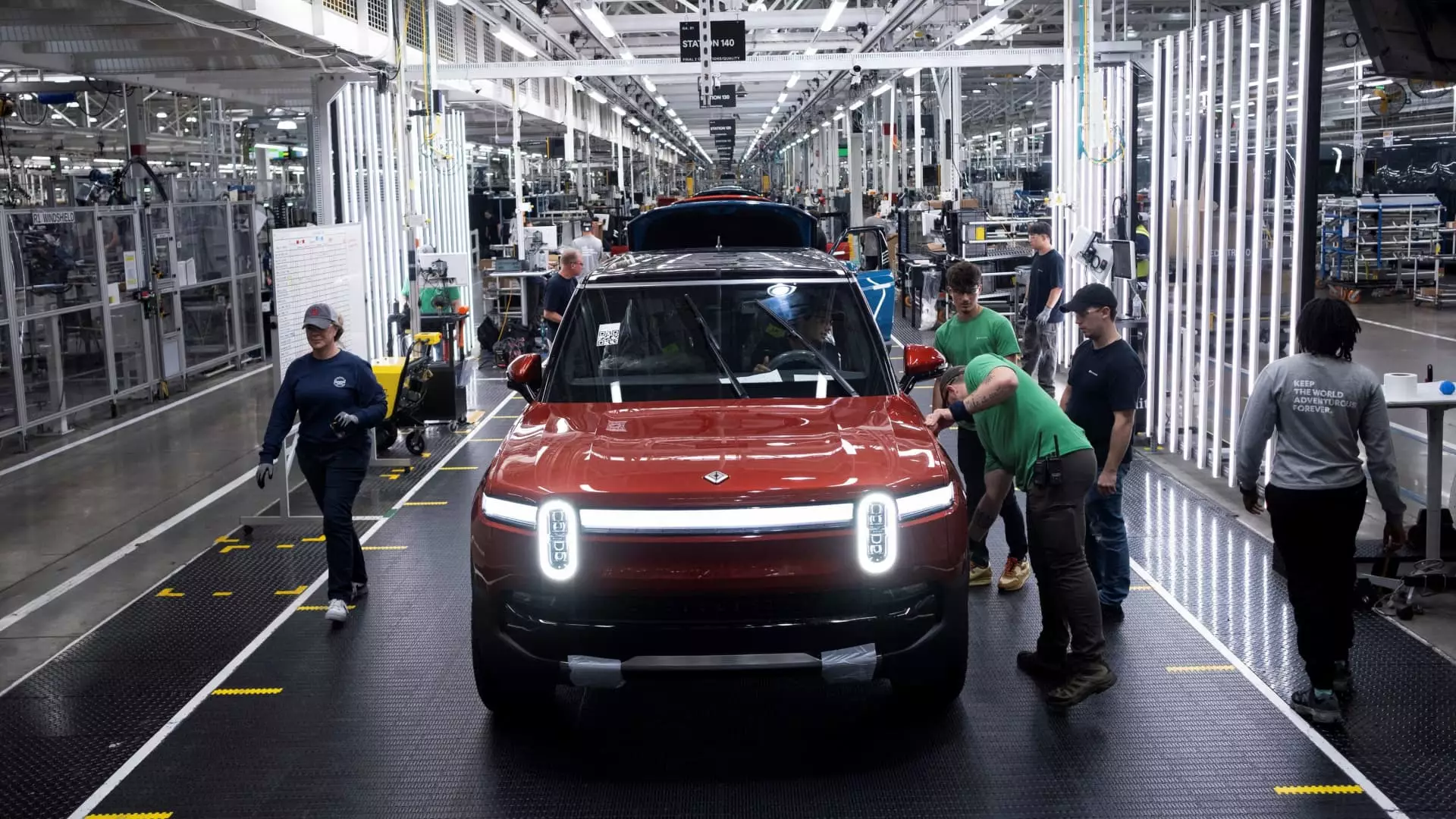Rivian Automotive, the electric vehicle (EV) manufacturer that once captured significant investor enthusiasm, is currently navigating tumultuous waters as it grapples with production delays and a shrinking forecast. The latest reports indicate a troubling shortfall in vehicle deliveries during the third quarter, resulting in a sharp decline in stock prices—a stark reflection of the company’s ongoing challenges.
Declining Production Forecasts
During early Friday trading, Rivian saw its shares plummet by approximately 4%, spurred by a disappointing report that revealed the company delivered fewer vehicles than analysts had projected. The business announced a stark revision of its annual production target for 2024, slashing expectations from 57,000 units down to a range of 47,000 to 49,000 vehicles. The primary cause of this downward revision lies in a significant supply chain disruption affecting Rivian’s R1 series and commercial vans due to a critical component shortage.
Rivian has publicly acknowledged that the production setbacks began in the third quarter and have intensified in recent weeks. The company detailed that this disruption is related to its in-house motor components, but specifics remain undisclosed. CEO RJ Scaringe previously hinted at a variety of supplier issues faced by the company, stressing the complexities inherent in managing a multi-tiered supply chain. As electric vehicle manufacturing is heavily reliant on collaboration with numerous suppliers, any faltering can lead to considerable ramifications.
Despite these challenges, Rivian’s management has reiterated its commitment to a modest annual delivery growth—even though the baseline growth from the previous year is only in the low single digits. For 2023, Rivian anticipates delivering between 50,500 and 52,000 vehicles, which indicates a more cautious outlook in contrast to its ambitious beginnings. This tempered expectation raises questions about Rivian’s ability to rebound as competition in the electric vehicle market intensifies.
Future Outlook: A Mixed Bag for Rivian
The production of 13,157 vehicles at Rivian’s manufacturing facility in Normal, Illinois, and the delivery of 10,018 vehicles in the most recent quarter were both below market predictions, illustrating the company’s ongoing struggle to meet demand. Analysts had anticipated deliveries closer to 13,000 vehicles. Additionally, Rivian’s year-to-date stock performance paints a bleak picture, with shares down over 50% as the broader demand for electric vehicles waned and operational costs continued to escalate.
Rivian Automotive’s recent setbacks highlight the complexities of scaling production within an evolving technological landscape. While the company attempts to navigate its current difficulties, the focus must shift towards stabilizing its supply chain and enhancing operational efficacy. Rivian’s future will undoubtedly depend on its ability to adapt to market pressures and regain investor confidence in an increasingly competitive EV ecosystem. The coming months will be critical as Rivian seeks to rectify its production issues while striving to leverage whatever growth opportunities remain in a challenging market.

